Post COVID-19, Time to Make Peace with Our Earth
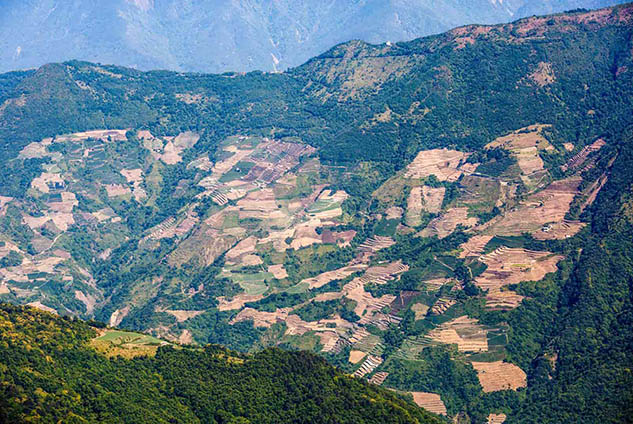
Source:Chien-Ying Chiu
The COVID-19 pandemic is just the latest warning sign that the balance between humanity and the environment is out of kilter. But it also provides an opportunity to set things right, including in Taiwan, and the time for action is now.
Views
Post COVID-19, Time to Make Peace with Our Earth
By Kwangyin LiuFrom CommonWealth Magazine (vol. 700 )
Hands running through fragrant soil, feet splashing through a cool stream, a night sky full of stars accompanied by a comforting breeze…..all childhood memories of many Taiwanese.
One of those who remember the days of a cleaner Taiwan is Steven Yang, CEO of Canopy Impact Investment, who grew up in the Shilin area in Taipei.
“There were rice paddies next to our home, and you could see cabbage white butterflies and ladybugs all along the road. This is the common memory of fifth and sixth graders at the time,” Yang recalls.
For more than 13 years, Yang worked at the Taiwan Institute of Economic Research, heading its research division focused on macroeconomics and financial markets for more than half that time.
Then Foxconn Technology Group (Hon Hai) Chairman Terry Gou recruited him to set up a Foxconn think tank, which Yang did for much of 2014.
But the good experiences and memories of his childhood ultimately dictated a major pivot in his career.
“The heat island effect in Taipei has gotten more serious these past few years. A lot of butterflies have disappeared, but people are still crowded in here,” he laments. Going out and exercising was once standard fare for Yang, but now he has to check daily measurements of PM2.5 particulates, a sign of how much breathing clean air has become a luxury.
“Cities are more prosperous than ever, but their living environments are getting worse,” he says.
Today, he is actively involved in trying to bring about the change he longs to see, abandoning his Foxconn think tank platform to engage in “impact investing.” His company targets investments focused on environmental sustainability that take on predatory consumerism.
“I hope that in the future my grandchildren can enjoy the same natural environment I saw when I was young, even if they live in Taipei,” Yang says.
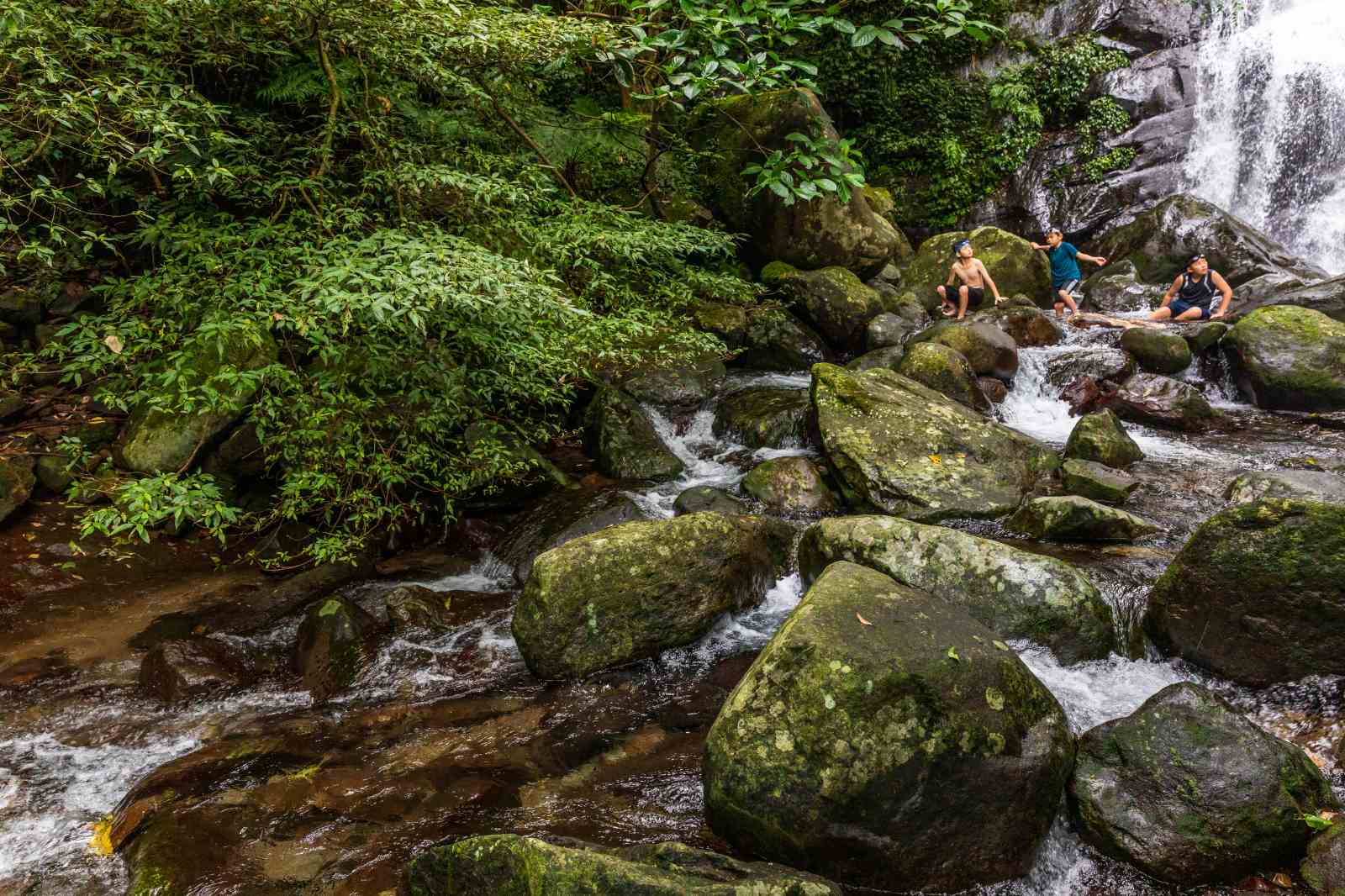
Much of the world is hoping for change because the environment is fast approaching a point of no return.
In the past two years, the World Economic Forum’s Global Risks Report has identified environmental and climate-related risks as the issues of greatest concern to the younger generation around the globe.
Steadily rising temperatures have sounded a global alarm. 2019 was the second hottest year in recorded history, and the past decade has been the hottest on record. Scientists warn that climate change trends are intensifying.
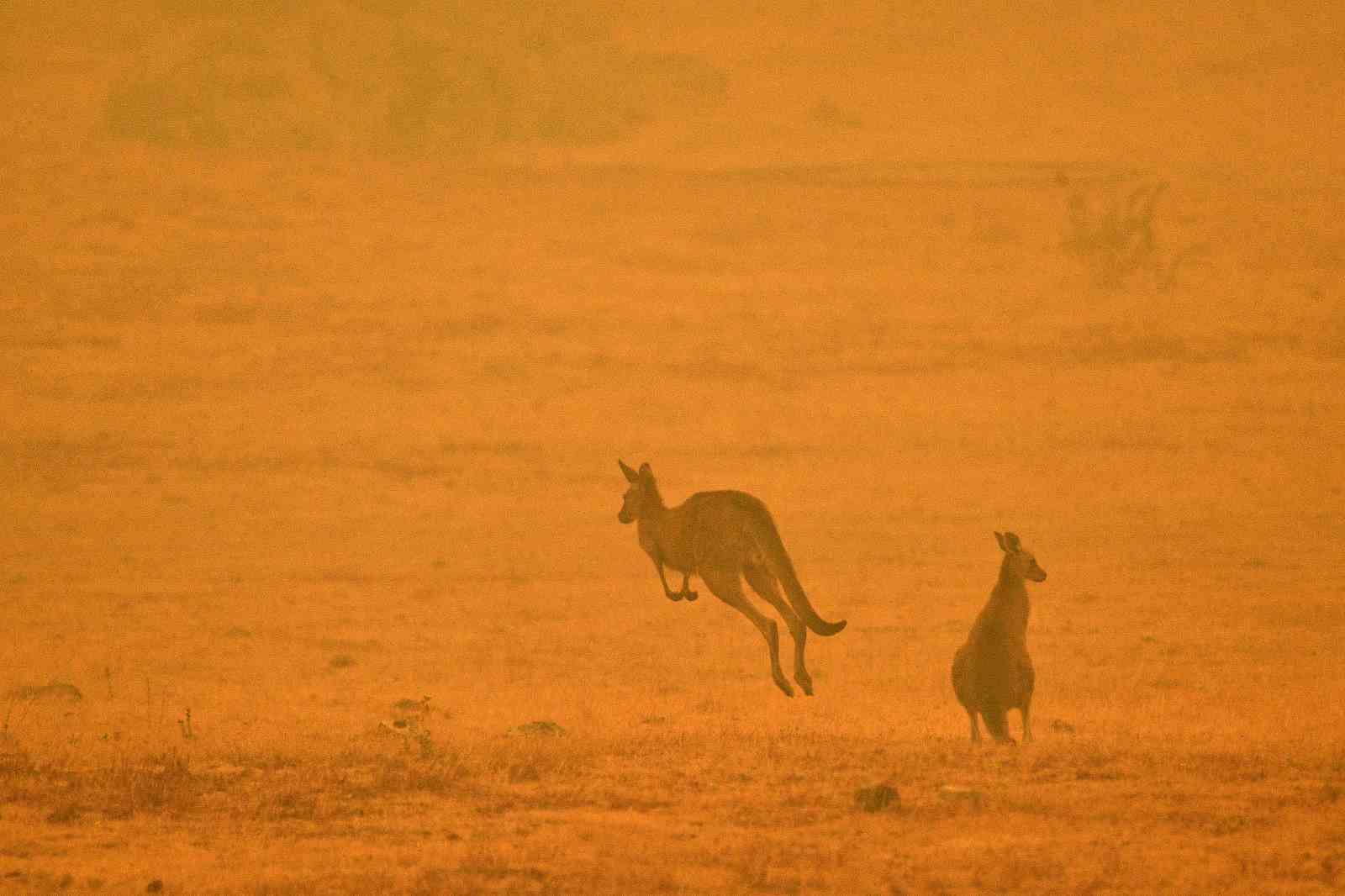
Through the burning of fossil fuels and massive deforestation over the past two centuries, carbon dioxide concentrations in the air (400 ppm) are 40 percent higher than the 280 ppm at the start of the Industrial Revolution, and methane levels have more than doubled. Human activity has changed a third of the Earth’s face, and overfishing has severely depleted coastal fishing industries.
Humanity is increasingly emerging as a threat to the Earth rather than a partner, with the two drifting apart.
So far apart, in fact, that it took a pandemic that enveloped the world to allow nature to breathe again.
COVID-19 has changed the world, causing lockdowns of cities and shutdowns of factories. Forecasts of global economic growth in 2020 have gone from 3 percent late last year to minus 3 percent now, even worse than during the depths of the 2008-2009 Global Financial Crisis.
Everything seems to be collapsing, but some things are quietly improving.
For one, the air is getting cleaner. Residents in Beijing are enjoying the rare pleasure of gazing at blue skies, and people in the northern Indian state of Punjab are seeing the Himalayas for the first time in decades, with one person saying: “I never thought I would experience such a clean world.”
“Some people are saying the Earth sent out the virus to protect itself,” said Chi-Ming Peng, CEO of WeatherRisk Explore Inc. with a sigh.
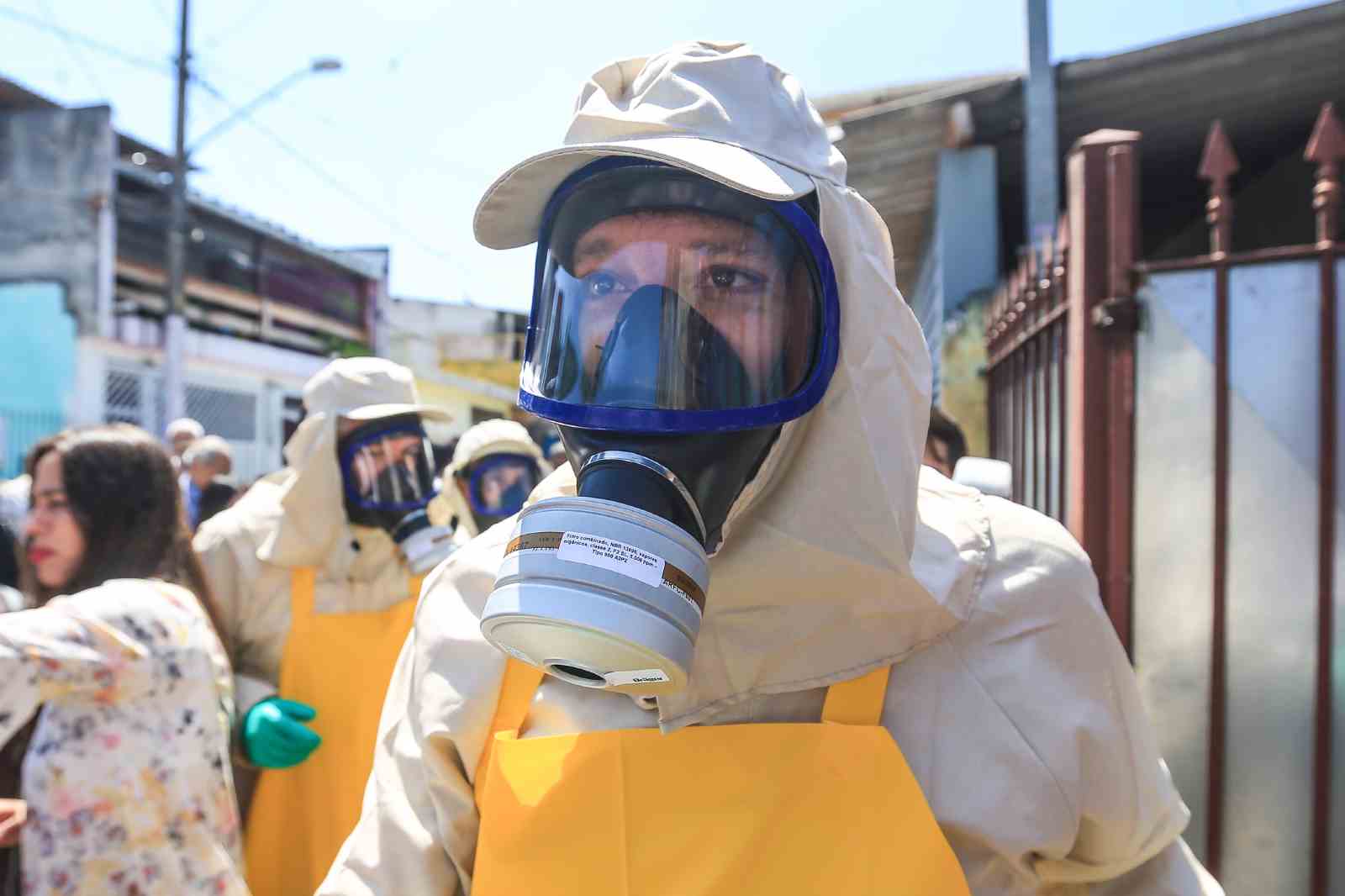
How have we arrived at this point?
1. Germination: Human Civilization
Looking back at history, the development of human civilization and the sacrificing of nature go hand-in-hand.
In his book “The Human Planet: How We Created the Anthropocene,” Simon Lewis, professor of global change science at University College London, wrote that as lifestyles have evolved, populations rose quickly and consumption soared. Over the past 10,000 years, the time it has taken the global population to double has shortened from 1,500 years to 42 years.
Lewis wrote of a planet that has gradually become dominated by human beings, who decide which species get to survive and which ones would head toward extinction.
For the first time in Earth’s 4.5 billion year history, a single species – homo sapiens, the so-called “wise” people – is increasingly dictating its future, Lewis argued, and the impact is already becoming evident. The global climate’s deviation from the norm stems from humanity’s unbridled pursuit of economic growth.
2. Blooming: Economic Miracle
Taiwan has forged world-class companies. The market capitalization of contract chipmaker TSMC exceeds NT$8 trillion and is the highest of any company in Asia. Taiwan’s per capita GDP has increased seven-fold over the past 30 years.
Yet the quality of the environment has not kept pace. In 2006, a CommonWealth Magazine special report called “Environment: Taiwan” took great pains to highlight how Taiwan’s economic and industrial development had sacrificed the environment. It showed how a third of Taiwan’s forests have disappeared over the past 100 years and how 70 percent of Taiwan’s 50 rivers have become polluted, in short, of how badly the environment has been overwhelmed.
Bruce Cheng, founder of Delta Electronics, recalled his time working at an electronics factory in the 1960s and how aghast he was at seeing wastewater from the electroplating process being directly discharged in nearby farmland without being treated.
“It was completely different from how I was trained in the United States,” Cheng remembered.
Amazingly, some 50 years later, untreated wastewater from electroplating factories continues to be covertly discharged into the environment around Taiwan.
Taiwan has accumulated huge amounts of wealth, but fresh air and clean water have become luxury items. If we continue striding in the wrong direction, the Earth could very easily fight back.
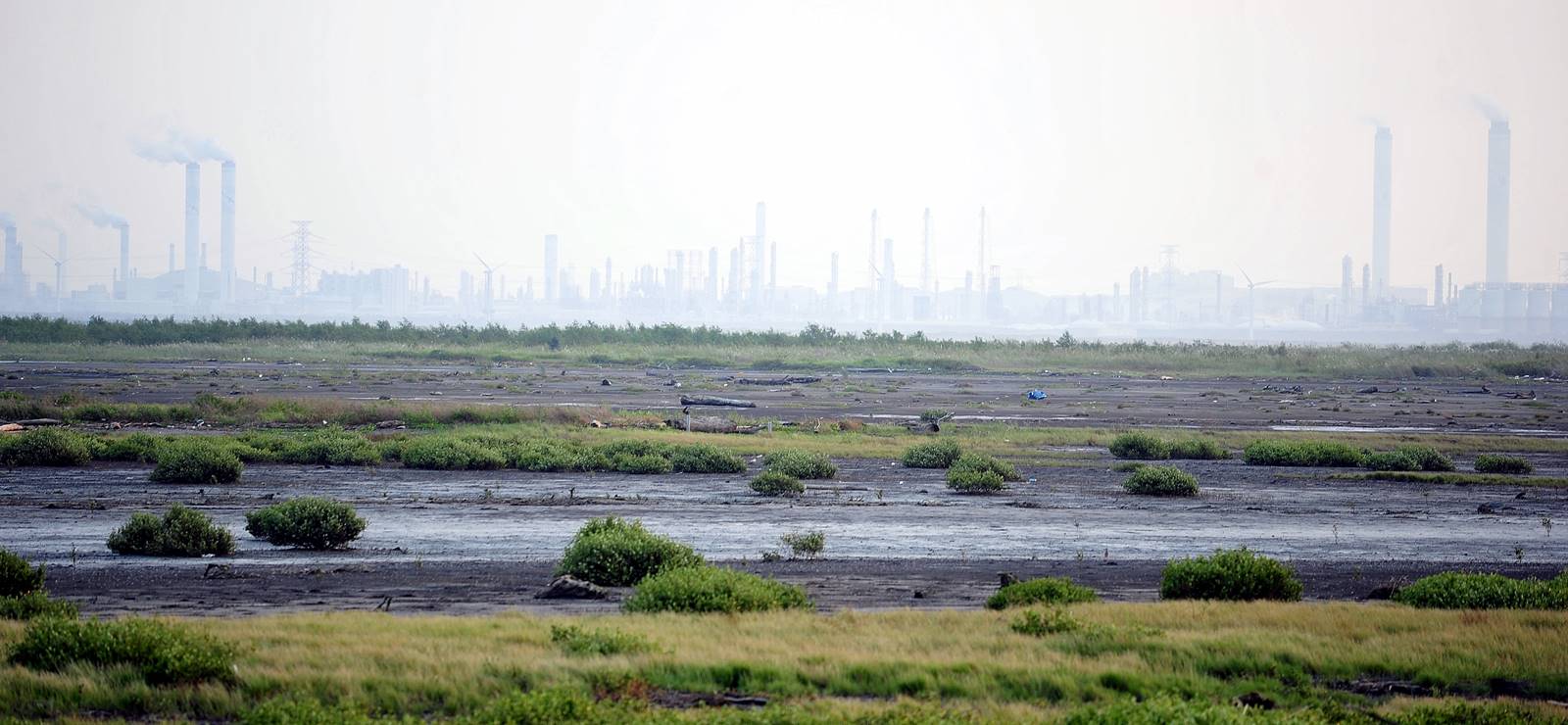
3. Natural Disaster: Climate Change
The backlash may have already started in the form of climate change, which could evaporate all of the gains from economic growth in the blink of an eye.
According to the latest Allianz Global Wealth Report, Taiwan’s net financial assets per capita ranked second in Asia, but Taiwan is also at the highest risk of extreme weather and natural disasters of any country on Earth. With an assist from climate change, Typhoon Morakot in 2009 wreaked more havoc in Taiwan than any other storm in history, causing damage to areas covering more than 50 percent of the island.
Temperatures have risen twice as fast in Taiwan as the world average over the past 100 years, and last year’s warm winter and drought prevented lychee trees from flowering and onions from growing big.
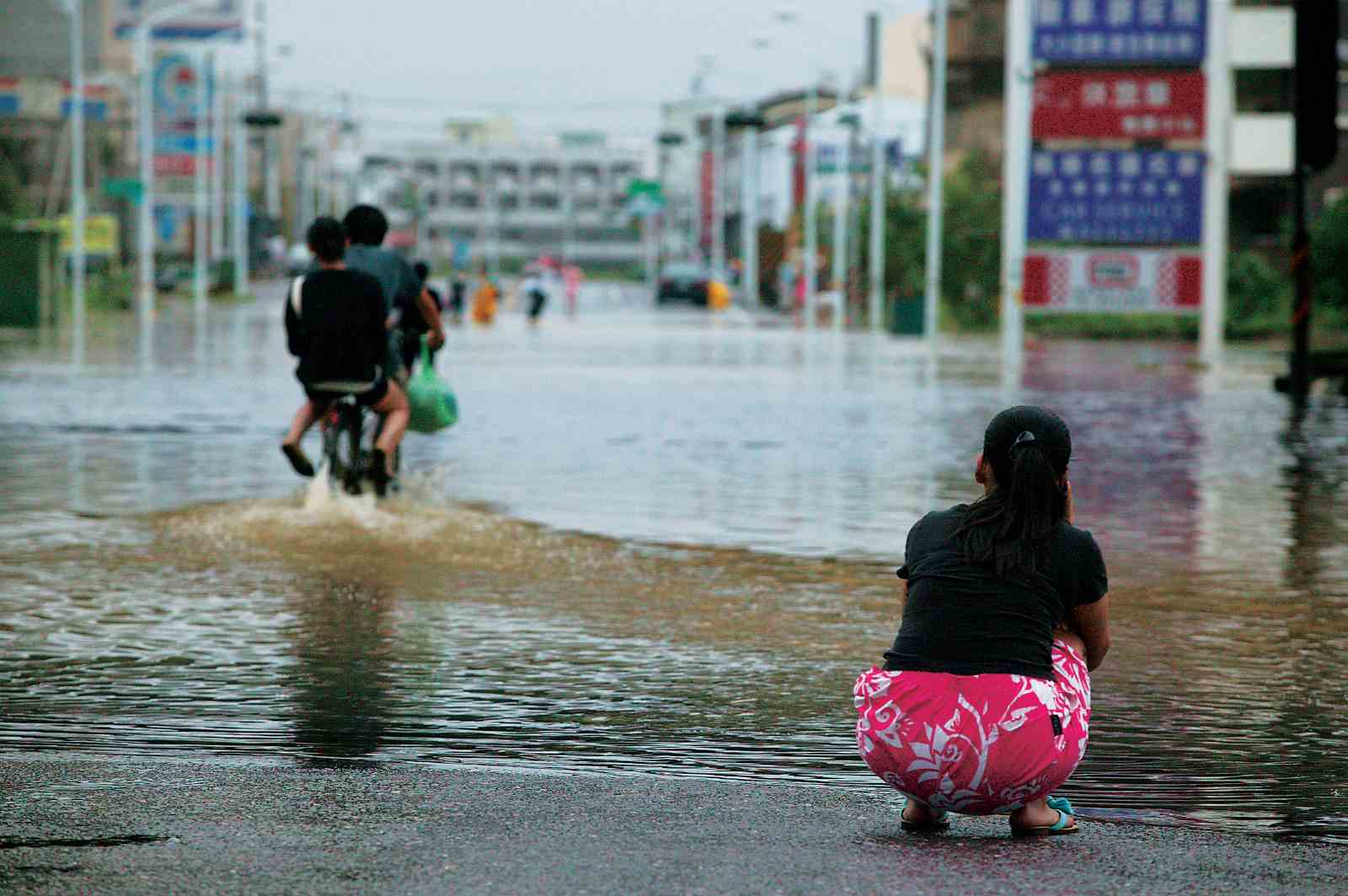
The threat from global warming mirrors that posed by a powerful virus.
“There is a period of neglect, a period of fermentation and then the emergency hits. Humanity cannot wait for the situation to explode before being vigilant,” said Hsu Huang-hsiung, deputy director of Academia Sinica’s Research Center for Environmental Changes.
The climate threat has entered the “fermentation period,” and if no action is taken, the Earth’s climate will pass a point beyond which a return to the stability of the past is impossible, Hsu said.
That has never been clearer than after the arrival of the new coronavirus, which sounded the alarm for the need for action.
4. Pandemic: The Virus Attacks
“There is a single species that is responsible for the COVID-19 pandemic – us.”
That sharply worded warning came in an open letter written by four scientists with the United Nations Intergovernmental Science-Policy Platform on Biodiversity and Ecosystem Services (IPBES) in April 2020.
“As with the climate and biodiversity crises, recent pandemics are a direct consequence of human activity, particularly our global financial and economic systems, based on a limited paradigm that prizes economic growth at any cost,” the letter said.
It noted that more than 70 percent of all emerging diseases affecting people have originated in wildlife and domesticated animals.
“There used to be a boundary between people and nature,” said Chyi-Rong Chiou, associate professor at National Taiwan University’s School of Forestry and Resource Conservation. Once the red lines are crossed, the risk of nature lashing back grows, he said.
Humanity Reaping what it Sows
From rampant deforestation and intensive farming to the exploitation of wild species, human beings have created a fertile environment for the spillover of diseases from wildlife to people.
Climate change has also exacerbated the impact of the COVID-19 pandemic.
In a simulation in which carbon emissions and rising temperatures continue at their current paces, the National Science and Technology Center for Disaster Reduction found that the aedes aegypti mosquito, the main vector mosquito for dengue fever, will start flying north of the Zhuoshui River (the unofficial boundary between northern and southern Taiwan) by the end of the century. In the future, dengue fever will no longer be limited to the summer or southern Taiwan, but will be around all year throughout Taiwan.
People often wait until they get sick before paying attention to their health. The global COVID-19 pandemic is a sign that Mother Nature has fallen ill.
“If you continue to allow the destruction of the environment and don’t put an end to carbon emissions, epidemics and extreme weather events will increase in frequency,” warned weather expert Peng Chi-ming.
That’s an outcome nobody wants to see.
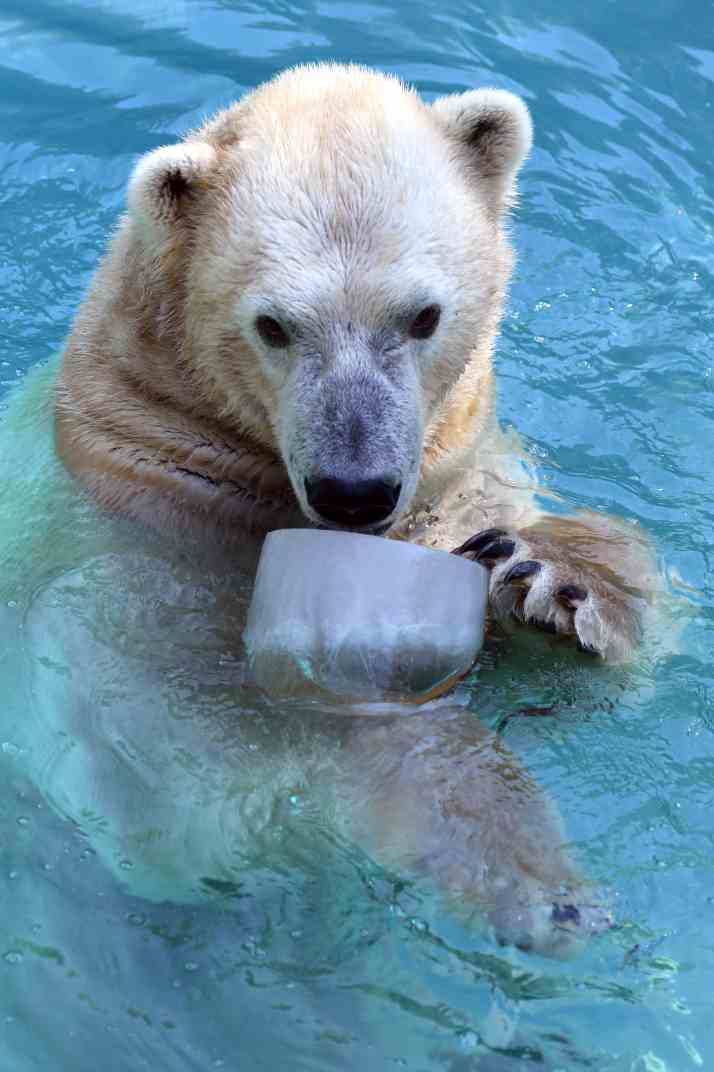
5. The Awakening: The Rebirth of Decimated Lands
The relationship and humanity should not be a zero-sum game.
In 2015, the United Nations declared sustainable development goals that pushed for the economy and environment to be mutually beneficial rather than eternally in conflict, a signal that the time for comprehensive change had arrived.
In August 2019, nearly 200 chief executive officers of leading U.S. companies with the Business Roundtable issued an unprecedented statement in which they redefined the “purpose of a corporation.”
The statement said, in effect, that maximizing shareholder value should no longer be a company’s main objective. Beyond generating value for shareholders, companies should take into account their employees, consumers and the social environment, the executives believed.
A similar message was delivered at the beginning of 2020, when the World Economic Forum issued the Davos Manifesto 2020 advocating stakeholder capitalism.
Remy Briand, the managing director of MSCI ESG Research, said a growing number of enterprises are changing their “profits first” mentalities, because companies are gradually being forced to consider the well-being of people and the environment rather than simply shareholder value.
So why has shareholder capitalism gone off the rails?
“Companies continue to make money, but the Earth’s predicament is growing more serious,” said Yang of Canopy Impact Investment. Existing business models, he said, tend to focus only on shareholder profits while sacrificing employees and customers and not caring at all about the environment.
We need growth that is sustainable. Otherwise, capitalism will destroy not only the environment but deprive the next generation of a future.
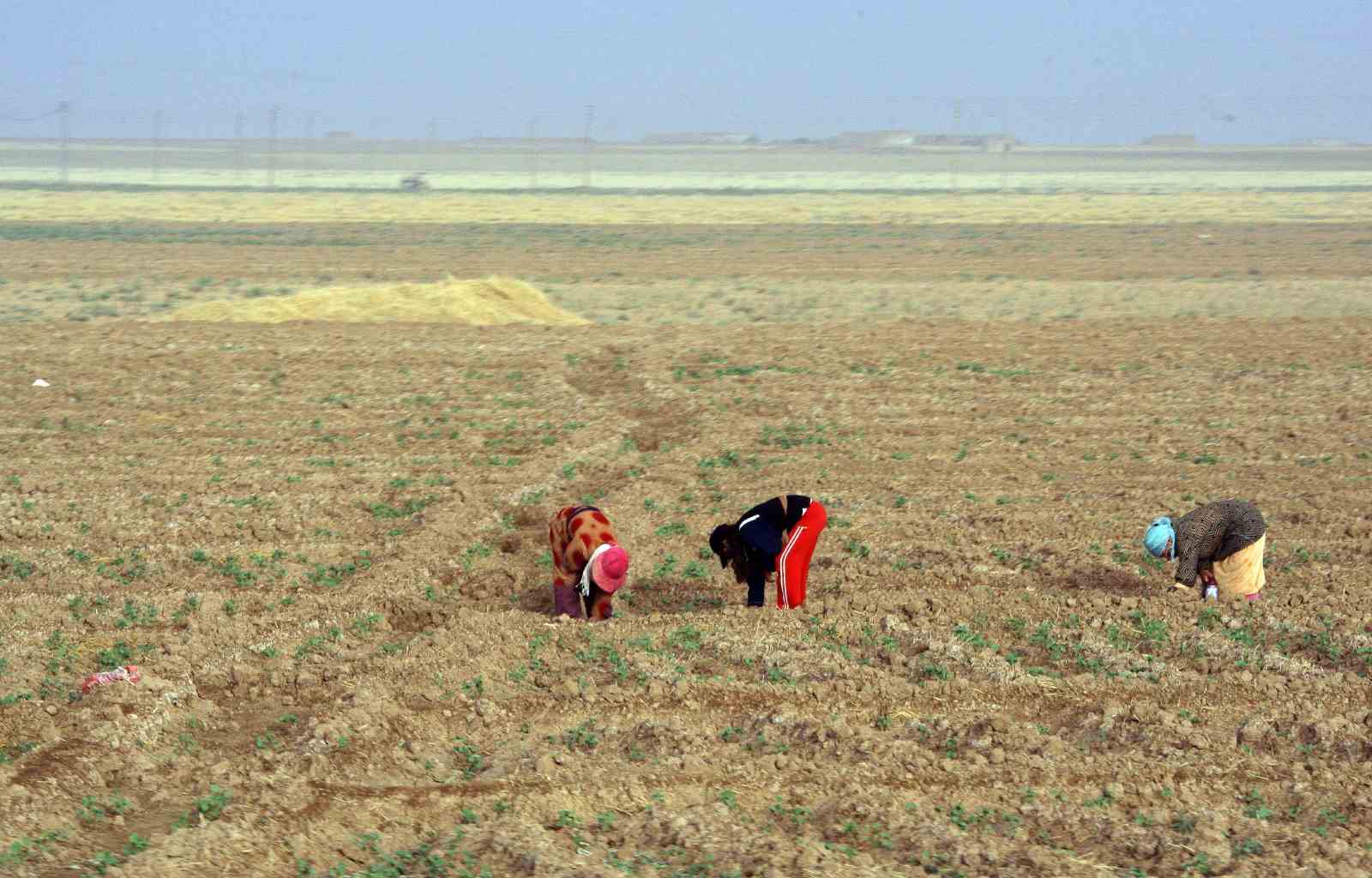
Many countries’ COVID-19 stimulus measures are favoring different stakeholders.
In mid-May, London Mayor Sadiq Khan announced that large parts of his city will go car-free as the lockdown is eased to allow people to walk and cycle freely.
“By ensuring our city’s recovery is green, we will also tackle our toxic air, which is vital to make sure we don’t replace one public health crisis with another,” Khan said.
6. Sustainability: Intergenerational Justice
If no action is taken, future generations will inherit an Earth that is nothing more than a wasteland.
To prevent that from happening, growing numbers of people are adopting more sustainable lifestyles, taking action to replace talk.
Among them is Peng Ruei-hsiang, who was an editor at Taiwan’s Environmental Information Center for 17 years. At the beginning of 2020, after receiving Waldorf teacher preparation training, Peng changed his career path to devote himself to ecological education, leading children on hiking, river tracing and canoeing outings to bring them closer to nature.
“My son loves to play in the water here,” Peng says, pointing to a clear water pool along the Paozilun trail in the Shenkeng area outside Taipei. “He seems as comfortable in nature as he does at home.”
While exposing children to the natural environment, he does not force a lot of information on them, preferring, he says, to “tell stories of mountain and tree spirits.” He encourages adults to display a love for the environment when with their children through actions rather than words, such as picking up litter when out hiking or canoeing.
By getting children to internalize a love for nature, they are more likely to see the environment as a stakeholder in the future. The environment cannot speak on its own behalf, and our generation has a responsibility not to allow today’s development to damage the rights and interests of future generations.
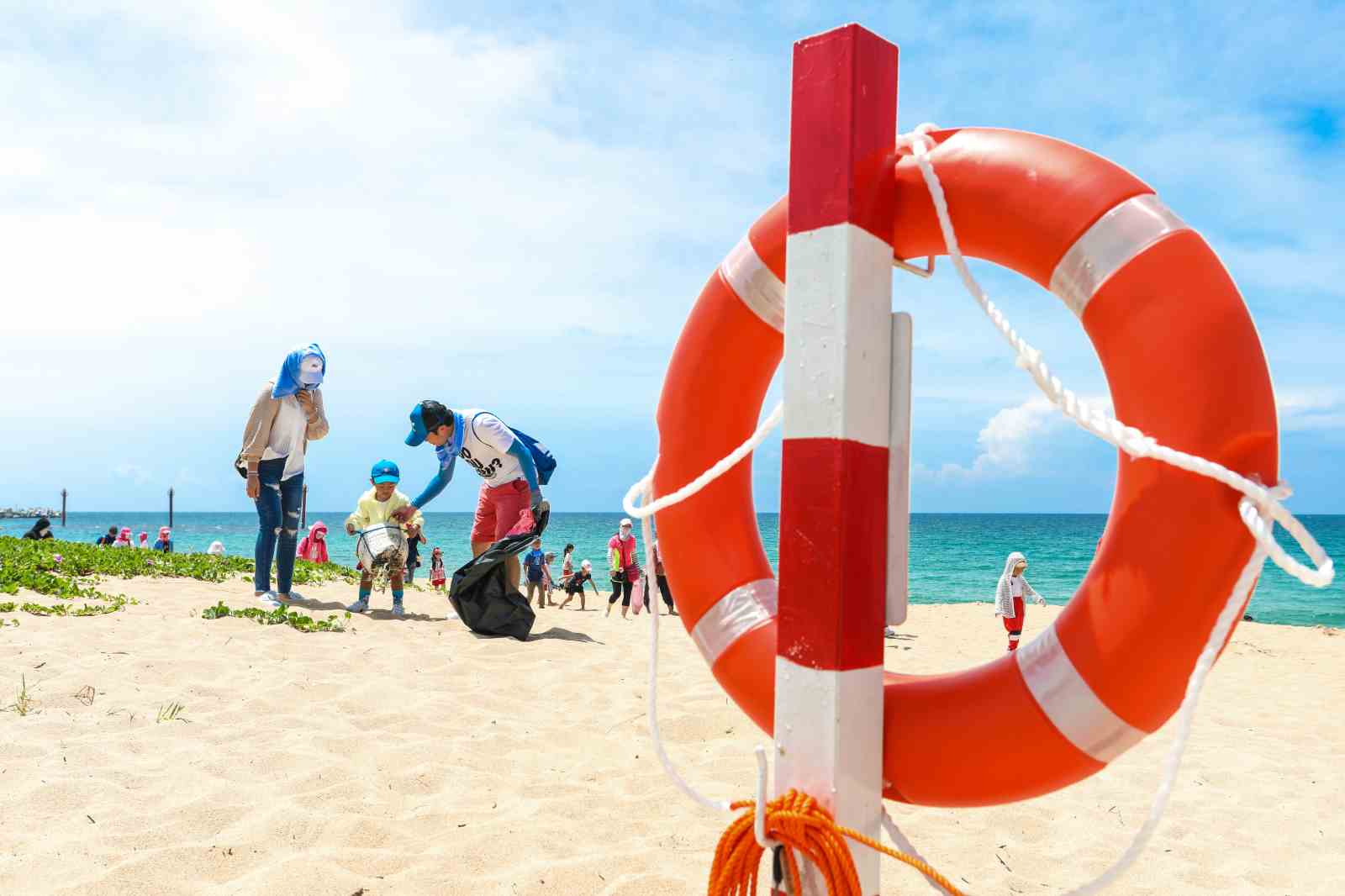
7. Reconciliation: For the Good of the Planet’s Health
Many people are also beginning to reflect on how their own actions affect the planet’s health.
“There first has to be a healthy environment if human beings hope to be healthy themselves,” said Shih-Chun Candice Lung, a research fellow at Academia Sinica’s Research Center for Environmental Changes and one of only a few people in Taiwan who studies planetary health.
In 2015, Harvard University and the Wildlife Conservation Society launched the Planetary Health Alliance because scientists were realizing that public health research’s focus on human health alone was inadequate because it ignored the environmental health component.
Lung cited the old axiom “if you drain the pond to get fish, there will be no fish next year,” to stress that human beings need to embrace the balanced use of resources to avoid their overexploitation and environmental degradation.
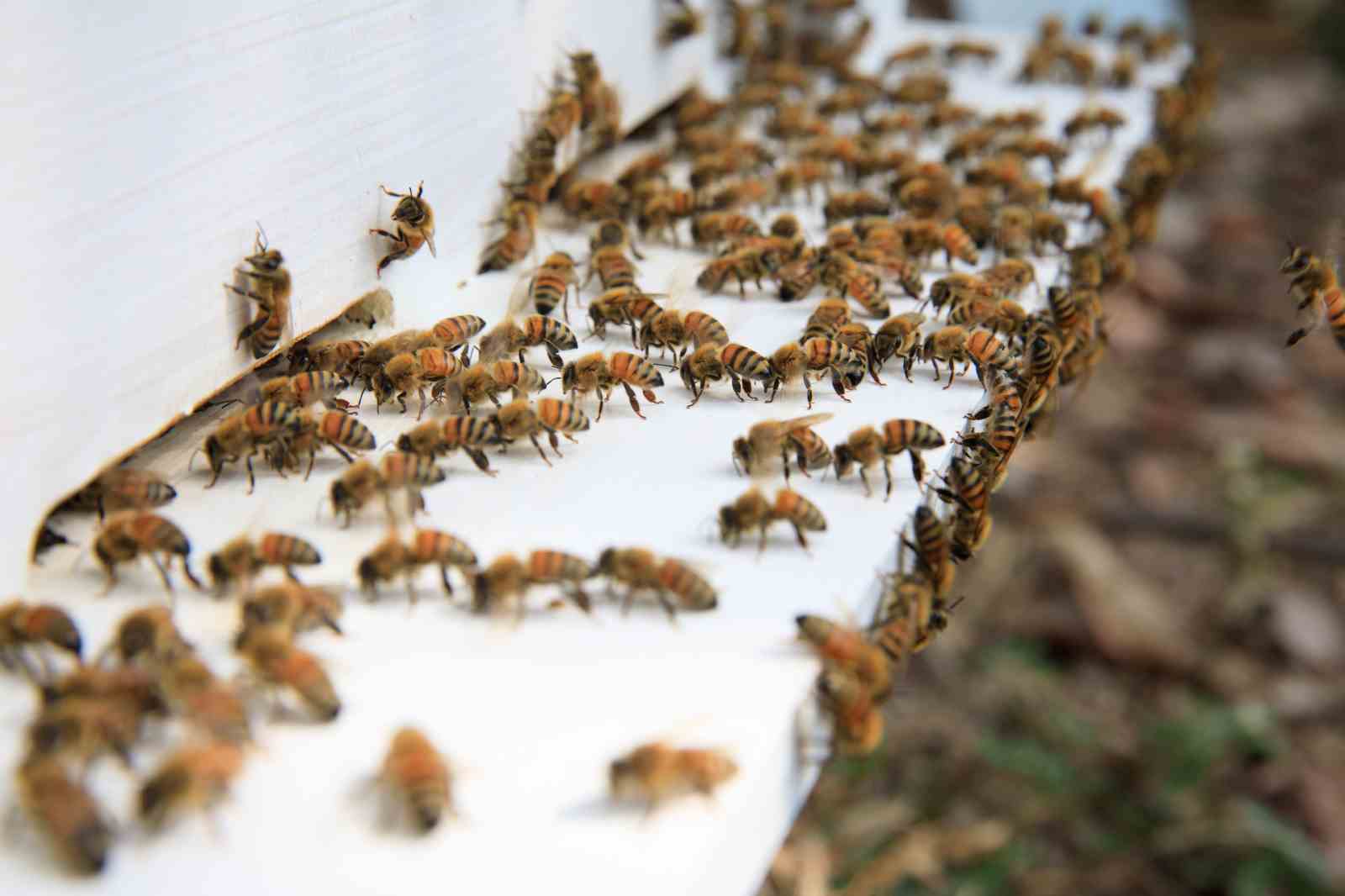
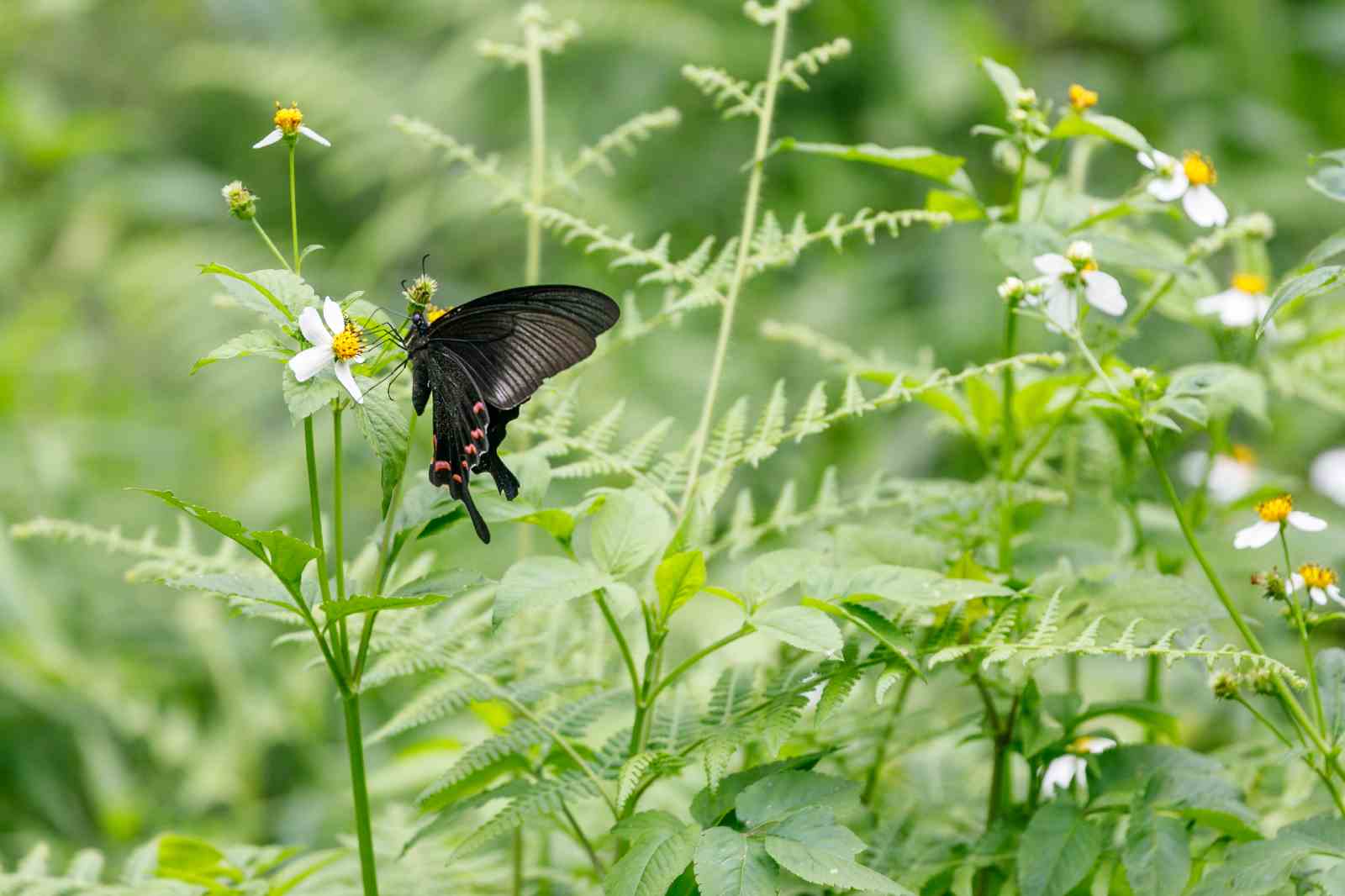
Of some comfort is that many in Taiwan have already embarked on the transition to more eco-friendly behavior.
Delta Electronics has shown that sustainability is not incompatible with economic opportunity. The company has long been dedicated to sustainable principles such as energy conservation and carbon reduction, but Delta Electronics Group revenues have still ranked among the top 30 of all Taiwanese companies for the past 20 years.
“If the earth we leave for our successors, no matter how much money you make it won’t matter,” stressed Delta Electronics founder Cheng, who urged companies to focus not on the short term but on creating greater value through actions that protect the environment.
People only seem to awaken to danger after catastrophe strikes. From climate change to the COVID-19 pandemic, the Earth’s voice can no longer be ignored.
COVID-19 has swept across the entire globe, taking a heavy toll on both the health and economies of human beings, but when the pandemic comes to an end, action needs to follow to change “business-as-usual” models of production and consumption.
If we hope that future generations have clean air and a clean environment; if we are willing to recognize that green mountain forests are vanguards of water and soil conservation; if Taiwan, which relies on exports to survive economically, wants to become a responsible player in the global system; then all people and companies along with the government must immediately act to repair our relationship with the environment.
Only with a healthy environment can we have a healthy economy and be healthy in the future. It is time to make things right with our Earth.
Have you read?
♦ Will a 20-Year-Old Forest be Chopped Down to Produce Solar Power?
♦ RSPRC: Green Transition Should Be Integral to Taiwan's Stimulus Plan
♦ Taiwan’s Renewable Market Revolution Taking Shape
♦ Strong Support Among Taiwanese for More Proactive Measures to Combat Climate Change
Translated by Luke Sabatier
Uploaded by Judy Lu






